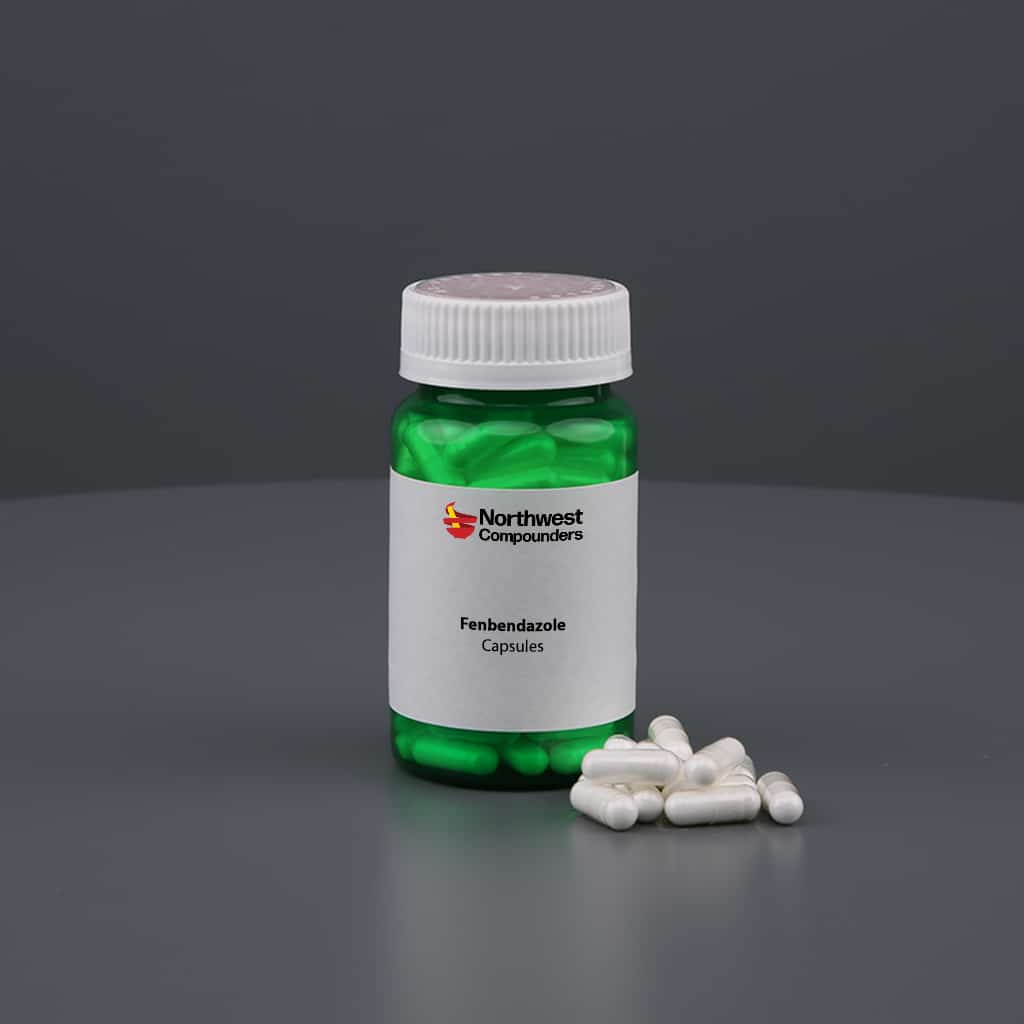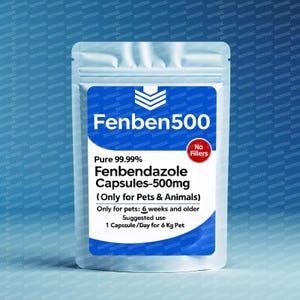fenbendazole 444: Everything Explained for Pet Owners
Wiki Article
Checking out the Systems Behind Fenbendazole and Its Influence On Pet Health
Fenbendazole is a commonly made use of anthelmintic understood for its efficiency versus different bloodsuckers. Its key device involves the restraint of microtubule formation, which interferes with vital procedures in these pathogens. Past its antiparasitic buildings, fenbendazole also shows up to improve immune reactions and has anti-inflammatory advantages. Comprehending these diverse effects could expose new applications for pet health. Questions remain concerning its complete capacity and safety and security profile.The Pharmacokinetics of Fenbendazole
The pharmacokinetics of fenbendazole, an extensively made use of anthelmintic in veterinary medicine, involves the research study of its absorption, circulation, metabolic rate, and discharging within pet systems. After management, fenbendazole is quickly soaked up from the intestinal tract, with peak plasma focus happening within hours. Its circulation is affected by elements such as cells binding and lipid solubility, enabling it to penetrate different cells efficiently. The drug undergoes comprehensive metabolic process mostly in the liver, where it is converted right into active and non-active metabolites. These metabolites play a function in the medicine's general efficacy and safety profile. Excretion takes place largely through feces, with a smaller percentage gotten rid of through urine. The half-life of fenbendazole differs amongst types, which affects dosing regimens. Recognizing these pharmacokinetic buildings is necessary for maximizing its therapeutic use and making sure effective parasite control in veterinary practices.Systems of Action Against Bloodsuckers
Fenbendazole exerts its antiparasitic impacts primarily via the inhibition of microtubule formation in bloodsuckers. This interruption affects their structural stability and mobile features, causing impaired basal metabolism. Because of this, the drug effectively endangers the survival and recreation of various parasitical microorganisms.Restraint of Microtubule Development
Inhibition of microtubule formation represents a critical system with which certain anthelmintic agents, consisting of fenbendazole, exert their effects on bloodsuckers. Fenbendazole binds to tubulin, a protein that creates microtubules, interrupting the polymerization procedure required for microtubule assembly. This interruption hinders vital mobile functions, including mitosis, intracellular transport, and structural honesty. As microtubules play a critical role in preserving the form and function of parasitical cells, their restraint causes cell cycle apprehension and eventual death of the parasite. This device is especially efficient against nematodes, as their reliance on microtubules for movement and nutrient absorption makes them at risk to fenbendazole. The restraint of microtubule formation is a crucial element of fenbendazole's restorative efficacy in veterinary medicine.Disruption of Energy Metabolic Process
Disrupting energy metabolic rate is an additional important device by which fenbendazole targets parasitic microorganisms. This anthelmintic alters the power manufacturing paths within parasites, mostly affecting their ability to produce adenosine triphosphate (ATP) By inhibiting sugar uptake and disrupting mitochondrial feature, fenbendazole restrictions the energy sources crucial for the survival and recreation of these organisms. As an outcome, parasites become significantly at risk to environmental anxieties and immune feedbacks. The disturbance in energy metabolic rate not only impacts the parasites straight however additionally decreases their capacity to absorb nutrients, even more impairing their growth - fenbendazole 444. Overall, the interruption of energy metabolic process represents an essential element of fenbendazole's efficacy against various parasitic infections, adding significantly to boosted animal health and wellness outcomesProspective Adverse Effects and Safety And Security Account
The potential adverse effects and safety profile of fenbendazole warrant cautious factor to consider, particularly in veterinary applications. While normally considered risk-free, some animals may experience damaging reactions, consisting of stomach disruptions such as vomiting and looseness of the bowels. Furthermore, neurological signs and symptoms, although rare, have been reported in sensitive people, highlighting the requirement for monitoring throughout treatment.
Fenbendazole's safety in numerous types, consisting of pets and felines, has actually been documented, yet dose and period of therapy need to be carefully managed to minimize risks. Pregnant or lactating animals might likewise need special focus, as the results on creating unborn children or nursing children are not totally understood.
Regular vet examinations can help minimize possible side impacts and guarantee the medicine is administered suitably. While fenbendazole is a reliable anthelmintic representative, caution concerning its side effects is important for keeping pet health.
Fenbendazole's Impact on Immune Feature
Fenbendazole has actually been noted for its prospective to modulate immune system actions in animals. Its anti-inflammatory residential properties might contribute to improved immune function, supplying a dual benefit in taking care of health (fenbendazole 222). Comprehending these results is crucial for assessing fenbendazole's duty in veterinary medicationBody Immune System Inflection

Anti-inflammatory Residences
Anti-inflammatory results stand for a substantial element of fenbendazole's influence on immune feature. Research study shows that fenbendazole might decrease the manufacturing of pro-inflammatory cytokines, which are pivotal in mediating inflammatory reactions. By modulating these cytokines, fenbendazole can potentially minimize inflammation-related problems in animals. This anti-inflammatory activity not just aids in handling symptoms connected with various illness yet additionally enhances general body immune system efficiency. Additionally, its ability to advertise a balanced immune feedback aids stop extreme inflammatory damage, which can bring about persistent wellness concerns. As a result, fenbendazole's function in swelling management emphasizes its importance in vet medicine, offering a double advantage of antiparasitic activity and immune system assistance for pet health.Applications Beyond Standard Parasitic Infections
While primarily identified for its efficiency versus numerous parasitic infections, fenbendazole has gathered attention for prospective applications beyond this typical extent. Recent research studies recommend that fenbendazole might have beneficial impacts on cellular wellness and immune action, making it an appealing candidate for taking care of various other health conditions in pets. For example, its reported anti-inflammatory homes may offer alleviation for pets suffering from persistent inflammatory conditions. Furthermore, some 222 mg research indicates that fenbendazole might play a duty in supporting the general wellness of pets by improving nutrition absorption and gastrointestinal health. Its potential as a complement therapy in cancer cells treatment has triggered interest, as initial searchings for suggest it could prevent lump cell growth in specific contexts. These varied applications highlight fenbendazole's convenience, encouraging additional exploration right into its diverse advantages for animal wellness beyond its traditional usage as a deworming representative.Future Research Study Directions and Ramifications for Animal Health And Wellness
The exploration of fenbendazole's potential applications has opened up new avenues for research focused on enhancing animal health. Future research studies can concentrate on its efficiency versus a wider array of microorganisms, consisting of microorganisms and viruses, thus increasing its role in veterinary medicine. The ramifications of fenbendazole's mechanisms, such as its influence on immune inflection, warrant better investigation to recognize exactly how it can boost overall health and wellness in various varieties.Furthermore, research may check out optimal does and formulations to make the most of efficiency while minimizing potential adverse effects. Exploring fenbendazole's synergistic results with other medications can result in more effective therapy procedures. Longitudinal research studies examining long-lasting outcomes in pets treated with fenbendazole can give useful understandings right into its safety and security and efficiency. On the whole, the continued exploration of fenbendazole provides encouraging potential to enhance pet wellness, necessitating a collective technique among researchers, vets, and pharmaceutical designers to facilitate advancements in this location.
Regularly Asked Concerns
Can Fenbendazole Be Utilized in Animals for Bloodsucker Prevention?
The inquiry of whether fenbendazole can be made use of in livestock for parasite prevention is relevant, as producers look for effective therapies (fenbendazole 222). Study indicates it might offer advantages, yet proper standards and vet guidance are crucial for risk-free usageWhat Is the Recommended Dosage of Fenbendazole for Different Pets?

Are There Any Kind Of Understood Medicine Interactions With Fenbendazole?
Current knowledge indicates that fenbendazole might connect with specific medicines, potentially impacting their effectiveness or metabolic rate. Vet professionals advise speaking with a veterinarian to analyze private pet situations and identify any type of feasible communications before management.Exactly How Does Fenbendazole Compare to Various Other Antiparasitic Medicines?
Fenbendazole is usually contrasted to various other antiparasitic medications based on efficacy, range of activity, and security accounts. It is preferred for its efficiency against a large range of parasites while normally showing minimal side impacts in pets.Is Fenbendazole Effective Against Viral or Bacterial Infections in Pets?
The effectiveness of fenbendazole against viral or microbial infections in pets continues to be unproven. Research study mostly concentrates on its antiparasitic properties, with minimal evidence sustaining any kind of function in treating non-parasitic infections in veterinary medication.Report this wiki page